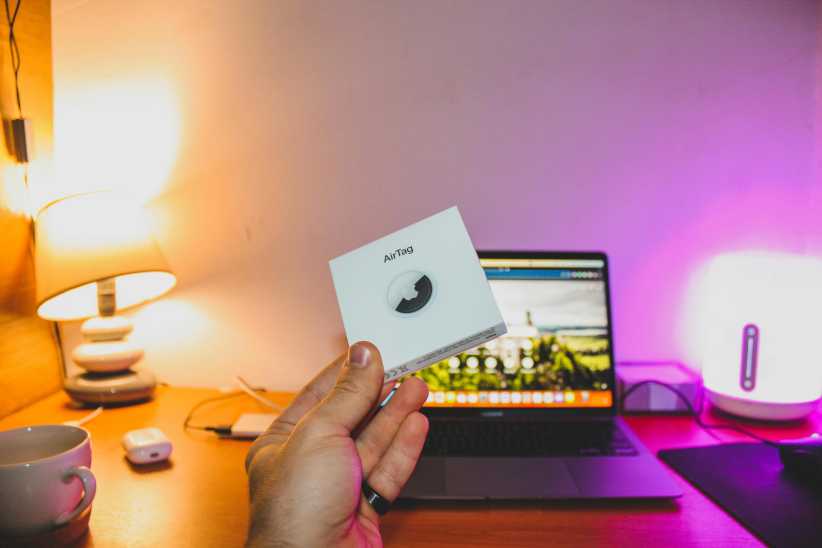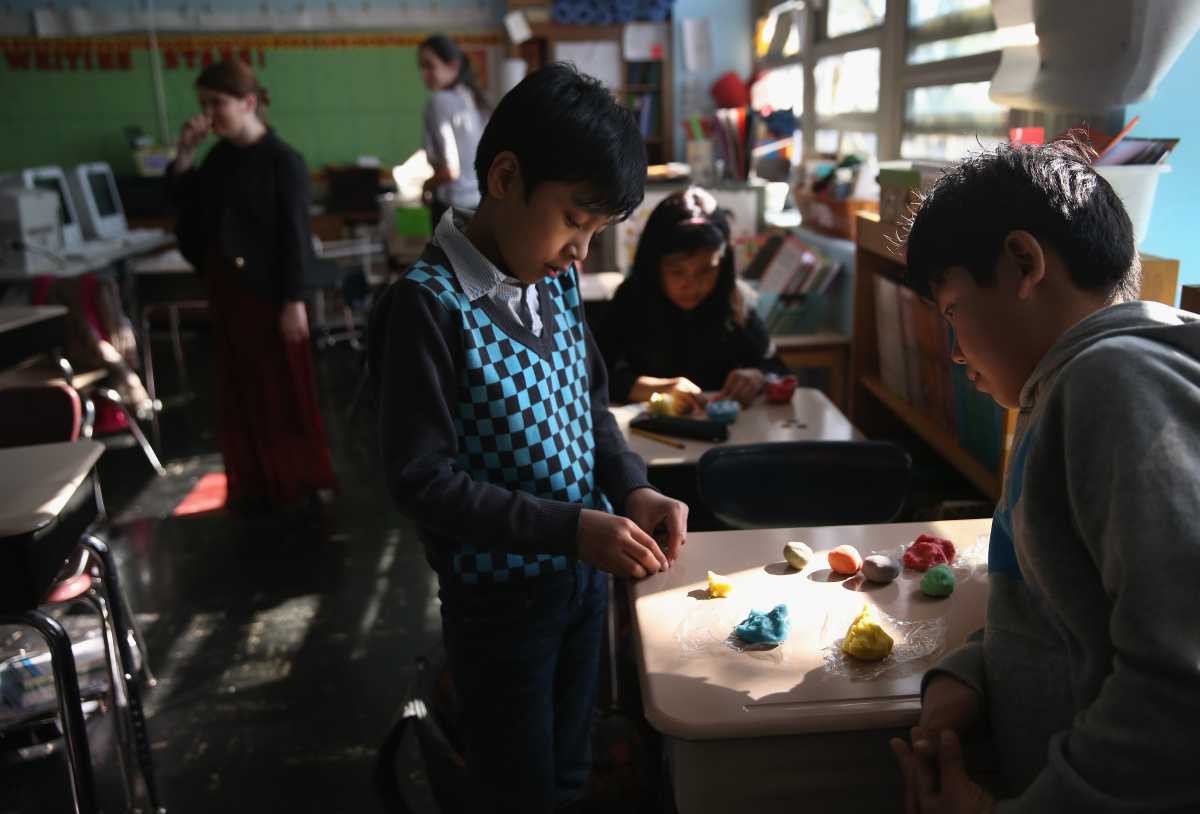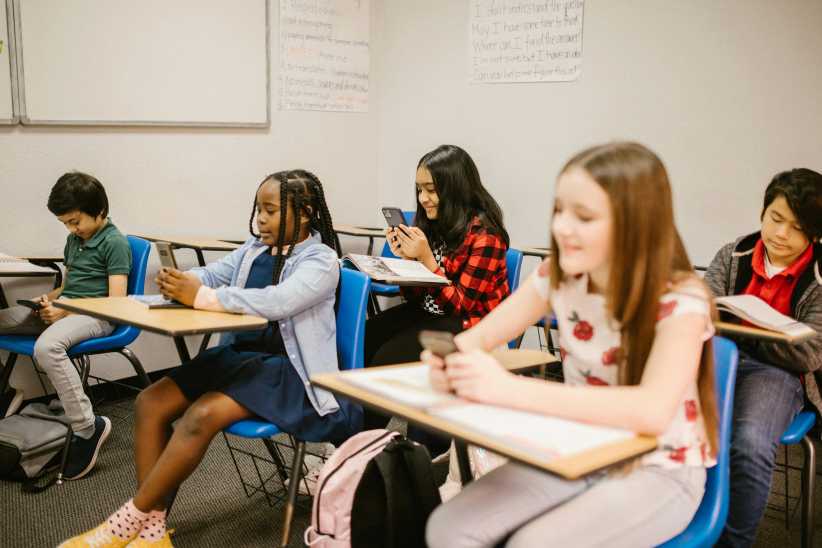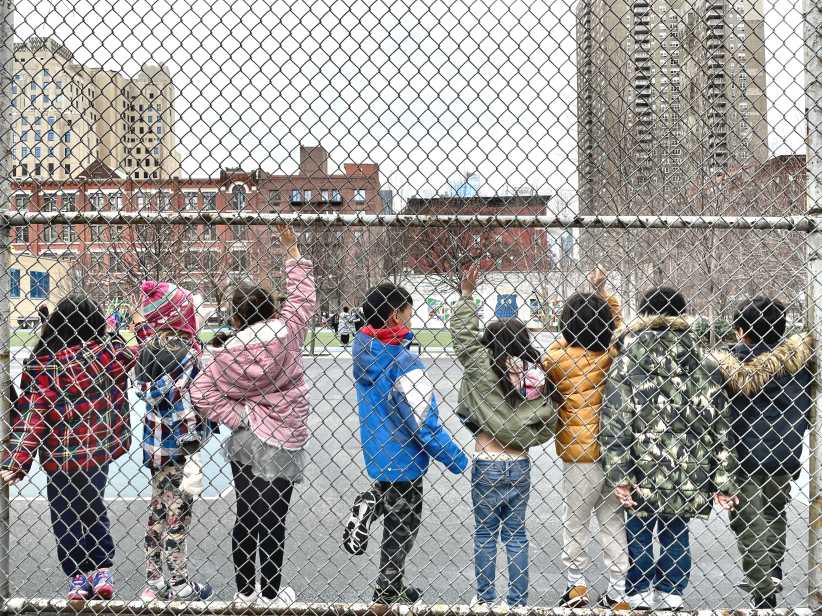
Should Your Child Wear an AirTag to School?
Airtags are a common way to keep track of something or someone, but should they be allowed in schools?
Sending your child to school can be a nerve-wracking experience for some families. Whether it’s your first time being apart or you or your child struggles with separation anxiety, the transition can be filled with worry, uncertainty, and misconceptions. Many parents find themselves wondering throughout the day if their child is where they’re supposed to be. Whether you’re trying to keep tabs on an independent teenager or experiencing first-day jitters with a kindergartener, one popular question continues to come up: Should AirTags be allowed in schools?
Psst.. Check Out 7 Back-to-School Organization Tips for the School Year
A New Era
As we navigate the age of information, new and improved ways of staying connected with your child have emerged. The city recently introduced the New York City Schools Account app, which allows parents to not only monitor grades and academic progress, but also track attendance and tardiness. Additionally, the NYC School Bus App provides real-time bus tracking and notifications, so parents can confirm whether their child’s bus has arrived at school safely, and get real-time bus tracking and notifications.
However, as school safety becomes an increasing concern in schools across the country, many parents have begun to consider sending their children to school with AirTags as an added layer of protection.
AirTags are typically used to track items — think if you often misplace your keys or wallet, or if you’re traveling and want to keep track of your luggage. The same logic applies to parents who send their child to school with an AirTag in their backpack or even in shoes designed specifically to accommodate the device, with the goal of knowing their whereabouts at all times, especially in case of an emergency.
Studies from Secure Data Recovery and All About Cookies reports that 80% of parents track their children’s location, with another source stating 91% of parents who have kids with cell phones use location-sharing.
While some may consider tracking their child an excessive move, 64% of parents have caught their children doing something they shouldn’t because of tracking. Additionally, 76% of parents say that monitoring their children’s online and offline activities has improved their children’s decision-making.
Extra Protection
Ylorie Taylor, Chief Brand Officer of BrownGirlMarketing, believes that New York schools have a strong safety system. However, between raising three children, one of whom is on the spectrum, communication and access to his whereabouts run a bit deeper.
“The conversation started because our older son is on the spectrum and has speech delays, which can make it harder for him to communicate if something unexpected happens,” Taylor says of the thought of sending her child to school with an AirTag. “With our younger son, the school has now banned phones in the classroom, which I understand from a distraction standpoint. But in an emergency where students may need to leave quickly, kids wouldn’t necessarily have their phones on them. That’s why I see AirTags as a modern convenience, not a replacement for school safety, but an extra reassurance for parents.”
In 2024, New York State schools were ranked 8th in the nation, citing safety as one of the determining factors. Though schools are equipped with school safety agents and NYPD guards, children are still able to slip through the cracks. Take the tragic death of 14-year-old Avonte Oquendo, an autistic child who went missing from his New York school on October 4, 2013, after slipping through an emergency exit door. A situation in which, perhaps, an AirTag may have helped locate him and save his life.
A hopeful example of the positive power of AirTags was the safe and successful recovery of 12-year-old Victorious “Tori” Smith, a New York City resident who had been missing for a week. Due to her AirTag, investigators were able to get a head start on their investigation and her whereabouts.
“For me, it’s not about lack of trust, it’s about understanding that things can happen and my child is still very young, with much outside of their control,” says Clarita Emmanuel, Owner, CME Accounting LLC. The New York mom, who is new to the city, has her concerns about bus safety, and when she has to leave her children in the care of someone else, AirTags are a lifeline for connection. Still, she hasn’t quite figured out the nitty-gritty details of the best way to handle privacy concerns from other students and teachers, or the best location to put the AirTag.
“[It gives me] peace of mind that I can track them if needed, [but] constant exposure to a device, possible inaccuracies or delays in location tracking, the risk of a false sense of security, and the visibility of the AirTag itself; it could be obvious and possibly draw unwanted attention.”
While the New York City Department of Education does not have specific guidelines on sending your child to school with an AirTag, they released the following statement to New York Family regarding the topic:
“We always ensure that parents and guardians can reliably reach their children at school. While New York City Public Schools does not have a formal policy regarding non-internet-enabled tracking devices, we encourage parents to discuss any concerns with their children’s school,” said a representative for the New York City Department of Education. “Every school must provide families with a clear way to connect with their children during the school day, and those procedures are shared with families in writing.”
Psst… Check Out How to Reset Your Child’s Sleep Schedule for Back-to-School: Tips for Better Sleep














